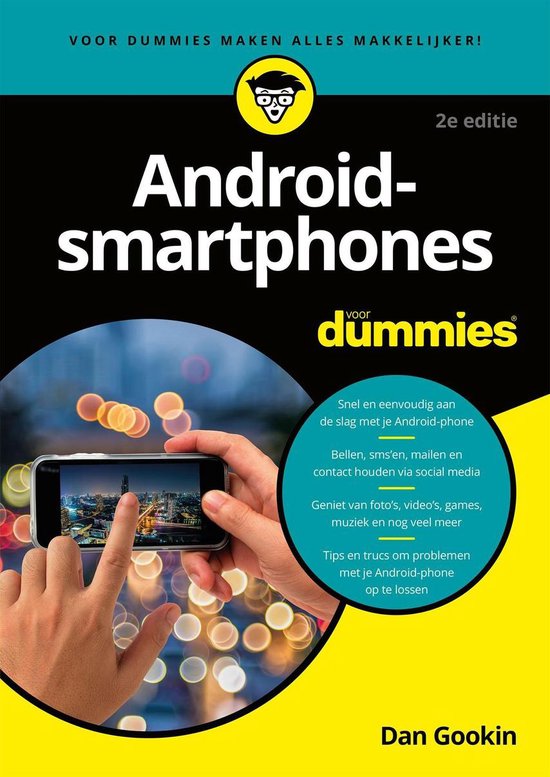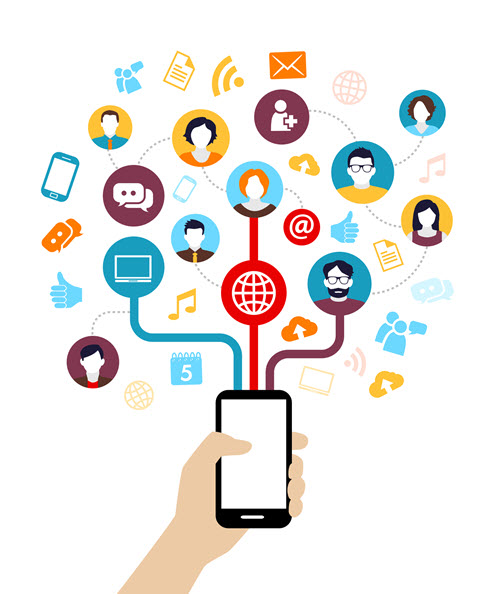Technology is developing at an unparalleled pace nowadays, new software, devices, techniques and accessories being released almost daily. As soon as you are getting used to the latest device, a new, more high-tech, high quality, high-resolution, etc. version is released. This can be very overwhelming and hard to keep up with for many people in our society, including myself sometimes. But keeping up and understanding the high-tech devices that are all around us is even harder when you grew up in a time where digital technology wasn’t really a thing yet.
My grandmother once told me that when she was a little girl, her mother was the first in the street to get a washing machine. That was phenomenal at that time, a real washing machine at home, just imagine! Around the same time the first televisions were being brought into homes, drawing all the kids from the neighbourhood to watch the kids show on one of the three available channels. Telephones were still very much attached to a machine plugged into the wall and had the form of what is now seen in our phone icon, the only reminder we still have of it. These technological developments were so innovative and phenomenal at that time, that it was inconceivable that about half a decade later these devices were ubiquitous and that the first wireless mobile phone would be a thing. Let alone the fact that some 20 years later everything is done over the internet through the most advanced smartphones and wireless accessories.
I have seen many eyes, belonging to mostly elder people, grow wide when their (grand)child got out their phone to pay for the meal or just flipped their wrist to put their smartwatch on the scanner. This was also the case when smartphones started to take over the world, all my grandparents held off on getting one because “why would you need all those functions, a phone should be able to call and that’s it”. When the world evolved further they hesitantly started looking into it and informing themselves about the uses and benefits of such a smartphone. But the real trouble began when they actually invested in such a device…
My grandmother, who is a very intelligent and curious woman, thought it would be nice to get a book about how to work with her new phone, so off to the library she went.
She indeed found a book (I think it was this one) and admittedly came very far, but some basic knowledge was still to be desired so she called me and my parents to come and help her out. As I had become used to working with a smartphone, it was hard for me to explain its usage to her properly. I had only so many ways of helping her understand how to make a screenshot or how to install a picture as her background.
My grandfather got a lot less far, understanding the very basics of the for him new, for us old Iphone but having to call me or my cousins whenever he wanted to take a picture. The frustration is always palpable when he doesn’t understand something or when invoices ask him to transfer the money by use of a QR code or through links in his email. He just doesn’t understand how it all works and can’t remember what we explained to him, no matter how hard he tries. He even followed some computer classes for seniors that actually seemed to work and help him understand the basics he needs to function in this digitized world.
And just today I spoke to my other grandmother about my birthday that is coming up and she was telling me about her new hearing aid she just got. She was very happy with them because they were so small and easy to use, they weren’t flying around when she removed her glasses or fixed her hair and you could even charge them wirelessly! She did have to call the company again, because she believed there were some other features that might be nice to have, like being able to play music through them. Her enthusiasm was adorable even though it was very clear that she didn’t know what she was talking about half of the time.
Whether elderly people get frustrated or enthusiastic when they have to deal with new technological issues or devices, it is important for us to remember that it isn’t all logical for them. The ease with which I navigate the web and use the features available on my smartphone, doesn’t come naturally to my grandparents and indeed often causes them stress and frustration. The fact that letters are slowly being exchanged for email and the possibility of calling a bank is discouraged in favor of asking a robot online, is a hard pill to swallow for my grandfather who just doesn’t understand how to really these new techniques. And the same goes for many other things in contemporary life that are becoming more and more digitized and mobile.




I love your writing style as well as your chosen topic! After reading your blog, it actually felt strange that this topic hasn’t been brought up during one of our lectures/discussions, since it is such a common problem in today’s society. The fact that your grandparents try to keep up with new technological developments is, I think, admirable! How often I see my own grandmother of in her 90’s struggling with even the (for our generation) simplest things such as handling a TV-remote. And as you mentioned, regarding bank accounts, this is a real problem with banks no longer being available offline. As a consequence, my grandmother is completely dependent on my father when it comes to such small technological things. I wonder if a safe mediating service can be implemented in society which specifically focusses on helping elderly with digital tasks, just like my grandmother is having a person for the household. I think that would lower the pressure that is now put on e.g. my parents.
Thank you for your post!
Yeah I totally agree! I know that some banks offer the possibility of someone looking into your bank account with you to make sure everything is oke, but still not really anything on helping elderly actually work with a digital bank account (which is undoubtedly a huge stress factor for some). I would be great to see my grandparents having help in these matters, except from me or my parents when a bill needs to be paid digitally or when the battery died and my grandpa couldn’t remember his PUK code…
This is a great blog post on an important topic that does not get enough attention. Me and my parents have helped my grandmother with paying bills, using the app to transfer money and learn how to use Whatsapp.
She had already blocked herself out of her account on multiple occasions. My mom also helps her with her emails, but we are very anxious about her being scammed over the phone or with a fishing email. The fact that insurance providers or banks are mostly handling their affairs online has been a difficult transition for my grandmother.
I think there should be more options for help available for the elderly, but the government and businesses don’t seem keen on doing that. For now, I think family or friends just have to patiently help them as best as we can.
This post is so relevant to the situation nowadays! I can only support everything that you have written here. It is a real issue for elderly people to cope with all the fast-developing technologies. My grandparents, who are mathematicians so they should have a “technical mind”, cannot deal with smartphones at all. Even my parents find it difficult from time to time, especially when they use social media. They often ask me for help which gets me irritated but as you say, we should remember that it is not obvious at all and be patient.
By the way, there are also some courses in my home town for elderly people. When I found out about them, I was so amazed. I think it’s wonderful! These courses are free and open for all seniors in the city because they are provided by the government. I really hope they are helpful.